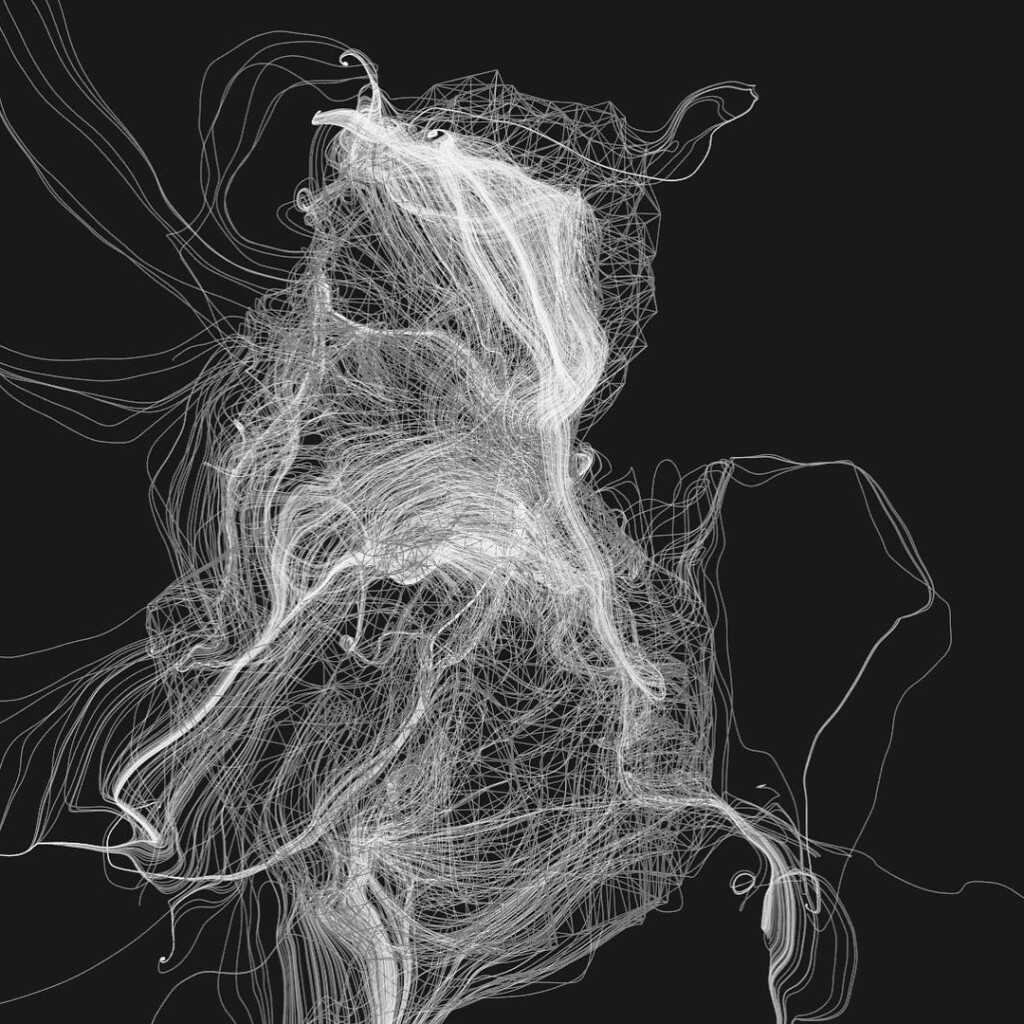Choices, the core of generative art, the code making decisions instead of the artist. The artist relinquishing control.
What is choice?
An odd question, it almost sounds nonsensical. This morning, I chose to walk from the station to work instead of taking the tram. Why? Because I felt like it, it wasn’t raining, I had time. I could have taken the tram but I didn’t. A choice.
Would we call it a choice if I’d rolled a dice to determine whether to walk or not? I guess we would say that rolling the dice is definitely a choice, the terms “odd is walking, even is tram” are also choices. But the final action, I don’t think we’d call it a choice. Or as we are apt to say, a conscious choice, although I wonder if the phrase “unconscious choice” would even makes sense. Looking back, the code isn’t making choices, we are, by programming and setting up the dice.
But did I really make a choice this morning? After all, my decision to walk was motivated by internal conditions (“felt like it”), external conditions (weather), and combinations of both (“had time”, maybe I don’t mind rain anyway). In identical conditions would I have decided the same thing? If not, why not, what motivator changed, didn’t we say “identical conditions”? If yes, if the outcome is fully determined by those identical conditions, was there ever a choice?
A thought experiment
Let’s invoke magic. We have a little box that takes us outside the flow of time, a detached observer. With the little box we can reset time, restore reality like a saved game and observe the actions of people. So I’m giving you the box and let’s look at me going to work.
I exit the station and instead of going to the tram I start walking. Reset. I exit the station and… What do you expect to see, the same behavior every time or do I sometimes take the tram?
Wait, isn’t this about free will? Yes, I guess it is. After all, even if it’s raining, even if I’m late, I *can* decide to walk. So maybe some resets, I decide to walk and some resets, I go to the tram stop. Classical free will, I can decide what to do when facing external conditions.
What is troubling me here is that it discounts the internal condition. After all, the state I’m in right now is the sum of my history. Maybe I’m listening to a Jerry Saltz audiobook and I want to hear another chapter. Why did I decide to listen? It’s why all the way down. Is there a prime motivator at the end of that chain that is somehow fully mine? A prime motivator that we setup ourselves like code? (And how did we choose that motivator… )
Paradox
So the classical view of free will has a paradox inside.
Either what I do is determined by how things are right now. In that case the reset will never show different behavior. Does a choice even exist then?
Or what I do is not determined by the internal and external conditions. The reset shows the different paths. But what can exist outside those conditions? My thoughts? Aren’t those fixed by what came before? Why was I thinking about finally listening to that audiobook? Where did the decision come from?
Daniel Dennett is a fervent defender of free will in a deterministic world. We are free in our consciousness to explore scenarios, to simulate reality, make choices. In my dice analogy, we’re following the dice rolls but we continuously set up the terms in our mind. I’m having fundamental problems with this view. After all, in a deterministic world, how are our thoughts not determined by what came before, etc. A famous attempt to reconcile the two worlds is Penrose’s theory of quantum consciousness. However, often overlooked in metaphysics, quantum isn’t dualism, invoking it does not give us control. On the contrary, it is intrinsic, fundamental randomness. An unknowable dice roll. Is this choice?
Can we have an indeterministic mind without invoking randomness? Religion has its prime motivator, that what drives us, that what guides our decisions, that what exercises free will. For me this isn’t an answer. It’s a metaphysical blanket, a rephrasing of the question disguised as an answer: what motivates the motivator? “Because I want” but why do I want? In the dice analogy, who set up the system that tells us how to react to the rolls? Surely it can’t be ourselves, because why did we choose the motivator that guides our choices. And if not us, how would this be compatible with free will?
The alternative to determinism really seems to be randomness. Somewhere down the chain of whys there’s an event beyond any control. Is this choice?
Stuck
And that’s where I’m stuck, and also one of the reasons why generative systems intrigue me. We might be less different from the systems we create than we’d like.
It seems that either choices don’t exist or deep down randomness determines choice. Neither seems befitting the word “choice”. The religious alternative, replacing a question with another question, doesn’t comfort me either.
The implications are mind poison, Lovecraftian dread, the blackest nihilism.
Is there any comfort in this? Yes, the magic box doesn’t exist. There are no repeatable conditions. Our minds, vindicating Dennett, are completely resistant to reset. We carry everything with us and tomorrow I might take the tram.
The question if choice exists or not is confined to a thought experiment. “Out here”, the question is a Gödelian grammatical construct. A valid sentence, food for thought but regardless of the answer we desire, the answer we believe, the answer we fear, it will never make a difference.
Nihilistic comfort in the face of nihilistic futility, worthy of the inner Werner Herzog.

